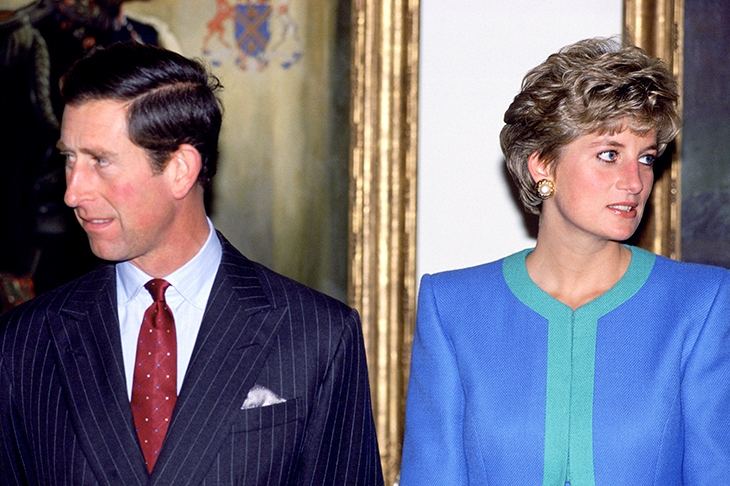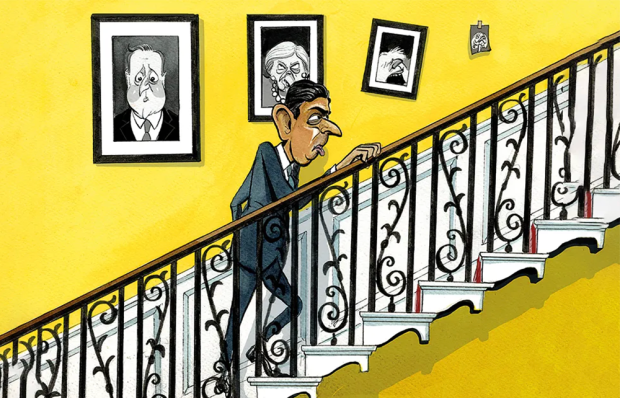‘One day,’ she writes, ‘we had the Minister for Northern Ireland for the night. He arrived wearing a kilt, which must have made the evening memorable for our German guests.’ Writing here (I should explain) is the widow of Sir Julian Bullard, then ambassador in Bonn, the West German capital.
‘Harry [the butler] beckoned to me and whispered “Come and see his bed”… so I followed Harry upstairs. The bed was neatly turned down. Tucked in, with only their heads showing, was a line of stuffed animals.’
The pair are surprised by the minister himself, nipping back to fetch papers. ‘He introduced each animal to me in turn. “Never travel without them. Couldn’t sleep if I did.”’
This is just one among scores of gems from an author whose memoir’s title, Endangered Species: Diplomacy from the Passenger Seat, describes what she believes herself and other ‘diplomatic wives’ to be. But this is not a fluffy book, and many of these anecdotes are anything but trivial. A couple of pages later we find her describing a visit by the Prince and Princess of Wales (‘We had to move out of our bedrooms as they were not prepared to share a bedroom, despite the newspaper headline of “TOGETHER AGAIN”’) and she records with distaste the way the royal party were — in their diplomatic hosts’ presence — sniggering at Diana.
Here’s how I come to be writing about this book, self-published last month by Margaret (Lady) Bullard, in her 93rd year. She wrote to me perhaps because my published anthology of ambassadors’ valedictory despatches includes her late husband’s masterly final letter from Bonn. Would I like to see her own book, she wondered?
The book has arrived — and I cannot put it down. It would have merited professional editing, an index, footnotes and photographs; but nothing can spoil a sharp, funny, unsparing account of diplomatic life, a loving testimony to a brilliant husband but — most poignantly — with flashes of anger and sadness from someone who has seen her life pass as a glorified sidekick, daydreamed about the might-have-beens, yet loved her husband so much that it all seems worth it. Almost.
But ‘I made a big mistake’, she writes in her letter to me ‘in saying that all proceeds [from the book] would support the St Hilda’s fund for bursaries’ because first she must cover her expenses, ‘hence I have to find 250 people I don’t know who will buy it!’ She had not realised (she confesses) that nobody will review a self-published memoir.
Well I will, because Margaret Bullard may have been a passenger but she was a shrewd and informed passenger and her driver, Sir Julian, chauffeured her through an extraordinary life. She sees things a driver doesn’t, and I love her sudden candour. The ambassador’s wife could allow herself to chuckle when an emperor had no clothes, and there’s an astonished, almost childlike freshness to her observations: the naivety of a noble soul too intelligent to overlook what stupider people disregard. In the Middle East she notices that eminent British personages (names I recognise) are soliciting bribes; she buttonholes Mrs Thatcher (‘who doesn’t hide her opinion that ambassadors are just for dressing up in ostrich feathers and a waste of money’) to argue for proportional representation — then worries she’s queered her husband’s career pitch; she wonders how our ambassador in Tehran could have failed to report that the absolute monarchy was about to collapse, and raises an eyebrow at his explanation that the Shah would have been furious if he’d sought the company of dissidents. She is stunned at Ted Heath’s rudeness to her husband in Dubai; and wounded that Sir Julian (an architect of Britain’s sensational decision to expel 90 Soviet diplomat-spies) kept from her his top-secret plan, whereas the then-minister, George Walden, had told his wife.
I love the anecdotes, of course: the arrival at the Bonn Residence of a shabby Michael Foot, ‘his large, soft zip-bag so full of books that there was hardly room for a change of clothes’ — and who was virtually silent at dinner because (Foot’s wife confided) ‘he needed an audience of a hundred in front of him to stir him up’. She wins over Tony Benn who at first tried to stay in a hotel because using the Residence, he said, ‘might give the German socialist government the wrong impression’ and who departed with his leftover sandwiches in his pocket. With the Queen, by contrast, she is told ‘to cover the Kleenex box in the loo with wallpaper to match the walls so Her Majesty would not have to see a vulgar commercial pattern’.
In counterpoint to anecdote, however, there’s a hauntingly sad song. She becomes so frustrated with dinner-guests who think her fit only to be asked how many children she has that she invents her own private game: ‘To know enough about subjects that would interest my neighbours for them not to resort to that question. This I counted as Victory for me. Otherwise Defeat.’ Her cancer and hysterectomy are dealt with in a single paragraph. And a heart-rending story is despatched with bitter brevity: a useless, alcoholic defence attaché beats his wife so badly she takes refuge with another diplomatic wife over the road. ‘She says,’ writes Bullard, ‘that the fault was hers, really: “I annoy him so.’”
There’s one short section of this remarkable woman’s memoirs that any psychiatrist would seize upon: a period when she becomes obsessed by bookbinding, teaches herself, attends classes, takes in work, becomes a professional in her craft, and adores it. She can think of little else. She realises it’s taking over her life when surely her calling is to support Julian. So she stops, turns her back utterly on bookbinding, and re-devotes herself to being a wife.
This series of Spectator columns used to be called ‘Another Voice’, but for what really is another voice, read a wife’s story.
Got something to add? Join the discussion and comment below.
Get 10 issues for just $10
Subscribe to The Spectator Australia today for the next 10 magazine issues, plus full online access, for just $10.
You might disagree with half of it, but you’ll enjoy reading all of it. Try your first month for free, then just $2 a week for the remainder of your first year.















Comments
Don't miss out
Join the conversation with other Spectator Australia readers. Subscribe to leave a comment.
SUBSCRIBEAlready a subscriber? Log in